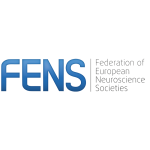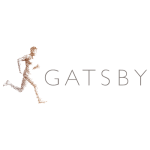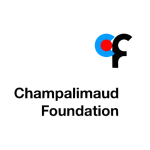Course overview
Computational Neuroscience is a rapidly evolving field whose methods and techniques are critical for understanding and modelling the brain, and also for designing and interpreting experiments. Mathematical modelling is an essential tool to cut through the vast complexity of neurobiological systems and their many interacting elements.
The course teaches the central ideas, methods, and practices of modern computational neuroscience through a combination of lectures and hands-on project work. During the course’s mornings, distinguished international faculty deliver lectures on topics across the entire breadth of experimental and computational neuroscience. For the remainder of the time, students work on research projects in teams of 2 to 3 people under close supervision of expert tutors and faculty. Research projects are proposed by faculty before the course, and include the modeling of neurons, neural systems, and behavior, the analysis of state-of-the-art neural data (behavioral data, multi-electrode recordings, calcium imaging data, connectomics data, etc.), and the development of theories to explain experimental observations.
Course directors
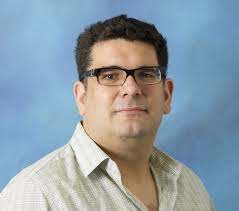
Brent Doiron
Course Director
University of Chicago, USA
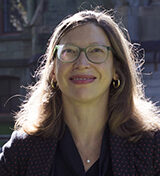
Maria Geffen
Course Director
University of Pennsylvania, USA
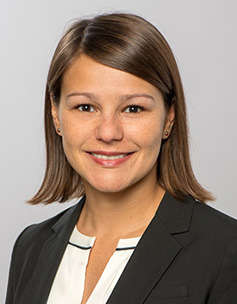
Julijana Gjorgjieva
Course Director
Technical University of Munich, Germany
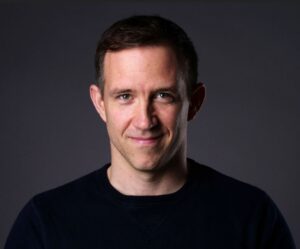
Joe Paton
Course Director
Champalimaud Foundation, Portugal
Keynote Speakers
Alex Cayco-Gajic – École Normale Supérieure, France
John Krakauer – Johns Hopkins University, USA
Maté Lengyel – Cambridge University, UK
Ashok Litwin-Kumar – Columbia University, USA
Christian Machens – Champalimaud Foundation, Portugal
Olivier Marre – Vision Institute, France
Ken Miller – Columbia University, USA
Srdjan Ostojic – École Normale Supérieure, France
Anne-Marie Oswald – University of Pittsburgh, USA
Saskia de Vries, Allen Institute, USA
Alfonso Renart – Champalimaud Foundation, Portugal
Megan Carey – Champalimaud Foundation, Portugal
Gilles Laurent – Max Planck Institute for Brain Research, Germany
Wiktor Młynarski, Institute of Science and Technology, Austria
Ann Kennedy, Northwestern University, USA
Instructors
Dylan Festa – Technical University of Munich, Germany
Francesca Mastrogiuseppe – Champalimaud Foundation, Portugal
Carlos Stein – Champalimaud Foundation, Portugal
Janaki Sheth – University of Pennsylvania, USA
Course content
Projects
Project 1. Emergence of selectivity through the interplay of Hebbian and homeostatic plasticity in neuronal networks (Gjorgjieva)
Project 2. Neural circuits for the generation of locomotor behavior (Gjorgjieva)
Project 3. Analysis of multi-neuron spike time series data from the locust olfactory system (Laurent)
Project 4. Reinforcement learning as a model for decision making (Paton & Lloyd)
Project 5. Finding structure in natural behavior (Murthy)
Project 6. The SSN: Dynamic behavior, effects of adaptive and saturating mechanisms and of network noise (Miller & Doiron)
Project 7. Uncovering synaptic plasticity rules from experiments (Stein)
Project 8. Implementing linear, nonlinear, and chaotic computations in spike coding networks (Keemink)
Project 9.Teaching animals to respond without bias by teaching algorithms to find bias (Macke)
Project 10.Predicting responses of single neuron in vitro: Mechanistic vs LIF models (Gonçalves & Macke)
Project 11. The role of inhibitory neurons in sound adaptation (Geffen)
Project 12. The neuronal circuit for hearing under uncertainty (Geffen)
Preliminary programme
All days are structured with lectures in the morning and experimental learning & tutorials – followed by discussion – in the afternoon
Week 1
17-22 July
-
Arrival and Welcome reception
-
Introduction and Single-Neuron Dynamics
-
Statistical analysis of neural data
-
Network dynamics
-
Normative models
-
Physical Constraints on Computing
23-24 July
Social event and free time
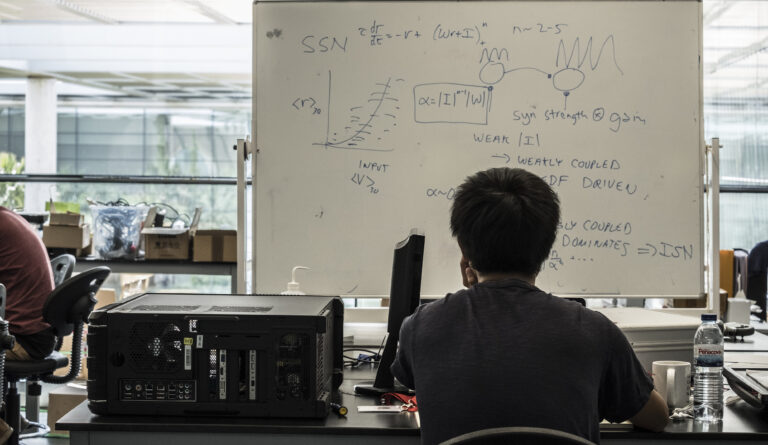
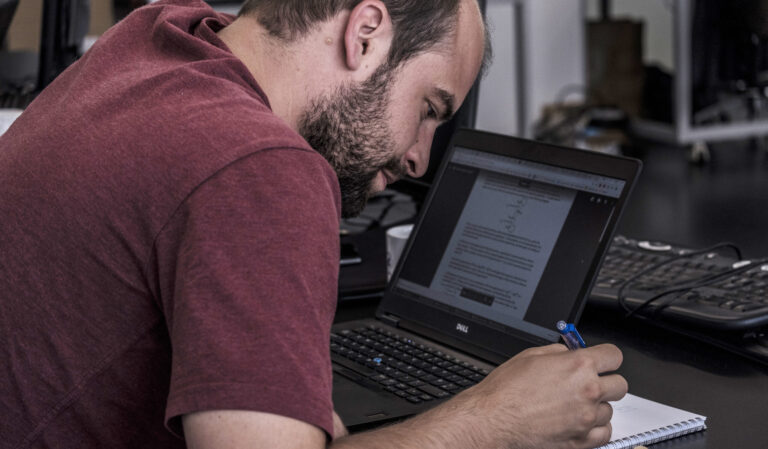
Week 2
25-29 July
-
Sensory coding and receptive fields
-
Spatial coding and memory
-
Vision
-
Neural Circuits and Synaptic Plasticity
-
Map formation and self-organization
30-31 July
Social event and free time
Week 3
1-5 August
-
Balanced Networks & Efficient Population Coding
-
Dendritic Computations & Birdsong Production
-
Reinforcement learning
-
Project work and presentations
6 August
Departure
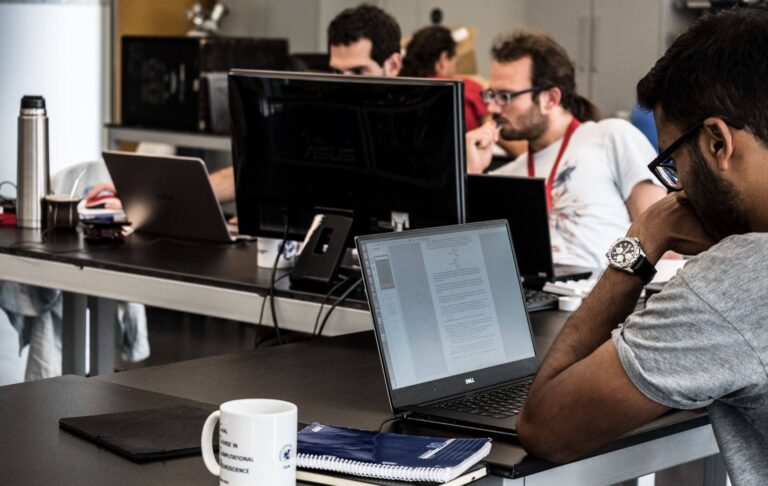
For more information on the course programme, you can visit the past course website.
Pre-school in Mathematics and Programming (12-15 July)
The Computational Neuroscience course targets both students with a biological/experimental background (“experimentalists”) and ones with a quantitative background (“theorists”). Two primary objectives of the course are to help students cross the traditional discipline boundaries that most are still trained in, and to get experimentalists and theorists to collaborate on a research project.
For the experimentalists, this often means catching up on their math and programming skills; for the theorists, on their (neuro-)biology. Because course projects will be computer-based, “catching up” is asymmetrical. When theorists engage on a course project, they can usually get by with limited neurobiological background. When experimentalists engage on a course project, however, they need some proficiency in programming and a solid understanding of the underlying mathematics.
To level the playing field and counterbalance this asymmetry, we offer an optional pre-school that teaches students with little or no programming skills the basics of modern programming languages (e.g., MATLAB or Python). The pre-school will also provide refreshers on standard math topics such as linear algebra and calculus, important to better follow the course. While a four-day school cannot be a replacement for the mathematical education that students from quantitative disciplines enjoy, it will give students a sufficient head-start to focus on lecture contents and the research projects, once the main course starts.
Unsure on whether to attend the preschool? It’s easy: if you have no knowledge of MATLAB or Python, then you should take the preschool. If you do know how to program in these languages, then it depends on your math background. Check out our little exam here to test your skills. Try to answer as many questions as possible within twenty minutes. The solutions are here.
Self-evaluation:
- If you managed to do all exercises (and you have some knowledge of MATLAB/Python) then you should skip the pre-school.
- If you more or less managed everything, with a few difficulties here or there (but you do know how to work in MATLAB/Python) then the pre-school may be a good idea, but you should consider it optional.
- If you managed to solve exercises 1 to 6, but had difficulties afterwards, then you should take the pre-school.
- If you had many problems in exercises 1 to 6, and the rest was pretty incomprehensible, then we’d strongly recommend to catch up on your high school math first before taking either the pre-school or the main course. Experience has shown that you will get very little out of the course without a solid background in quantitative thinking
Please note, that there is an additional fee for the pre-school: 500 EUR , which covers tuition, housing, and boarding for the extra days. Applications to the pre-school are part of the application to the main course.
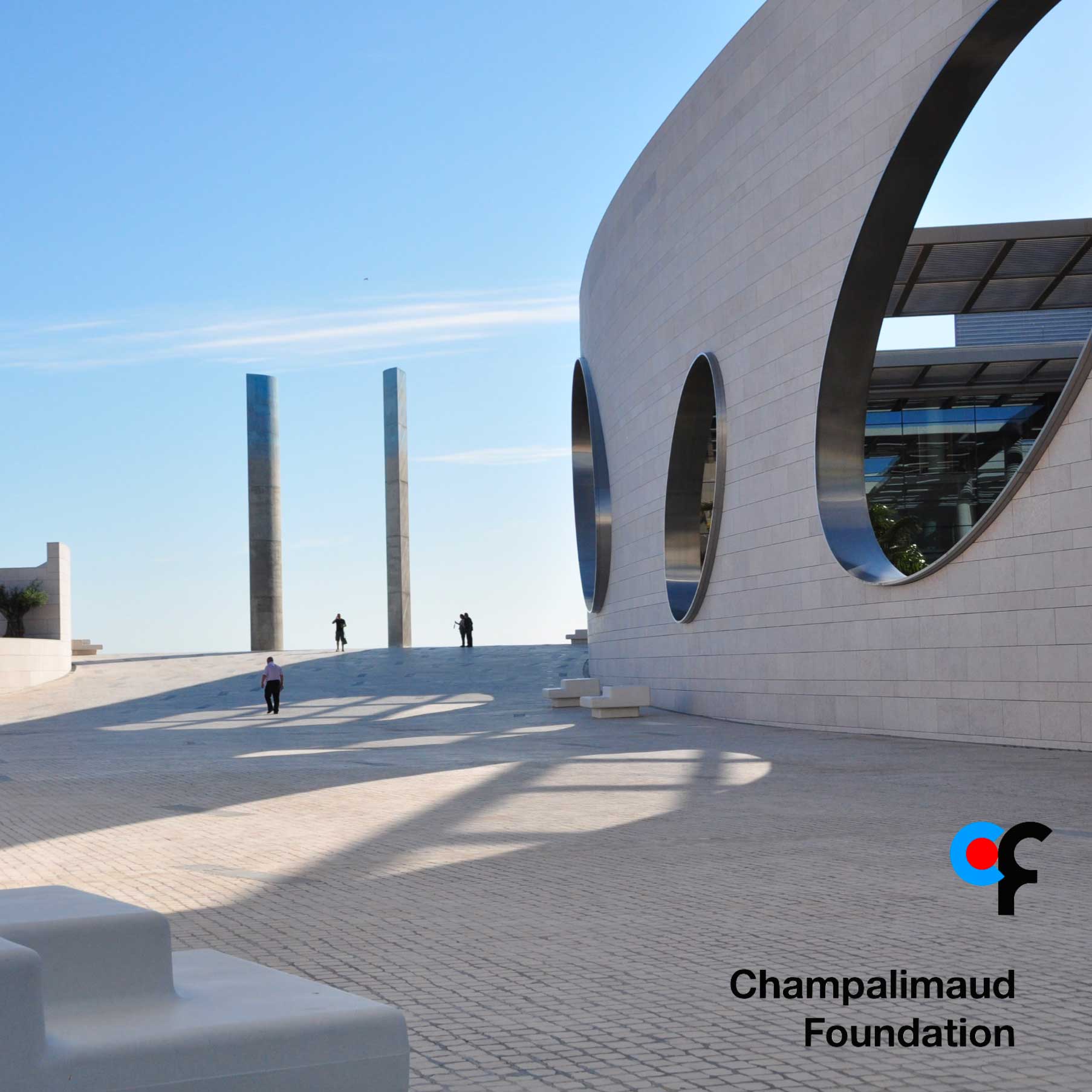
Champalimaud Centre for the Unknown, Portugal
The Champalimaud Foundation is a private, non-profit organization, established in 2005 and dedicated to research excellence in biomedical science. Completed in 2010, the Champalimaud Centre for the Unknown is a state-of-the-art centre that houses the Champalimaud Clinical Centre and the Champalimaud Research, with its three parallel programs – the Champalimaud Neuroscience Programme, the Physiology and Cancer Programme, and the Experimental Clinical Research Programme.
Initially focused on a system and circuit approach to brain function and behavior, the Centre expanded to incorporate molecular and cell biological expertise. The Centre comprises 26 research groups (circa 400 researchers) leading independent curiosity-based research.
Facilities
The Centre provides Facilities dedicated for Training, some in their entirety, for use by the CAJAL Advanced Neuroscience Training Programme. These include the Teaching Laboratory, a fully equipped open lab space for 20-30 students that can be dynamically reconfigured to support a full range of neuroscience courses. It also overlooks, via floor to ceiling windows, a tropical garden and the river. The experimental spaces include: Imaging Lab: A dark-room containing a full size optical table is used for advanced imaging setups (two-photon microscopy, SPIM, etc.) and custom (course-designed) optical systems.
Registration
Fee : 2.500 € (includes tuition fee, accommodation and meals)
Pre-school fee: 500 €
Applications closed on 28th March 2022
The CAJAL programme offers 4 stipends per course (waived registration fee, not including travel expenses). Please apply through the course online application form. In order to identify candidates in real need of a stipend, any grant applicant is encouraged to first request funds from their lab, institution or government.
Kindly note that if you benefited from a Cajal stipend in the past, you are no longer eligible to receive this kind of funding. However other types of funding (such as partial travel grants from sponsors) might be made available after the participants selection pro- cess, depending on the course.



